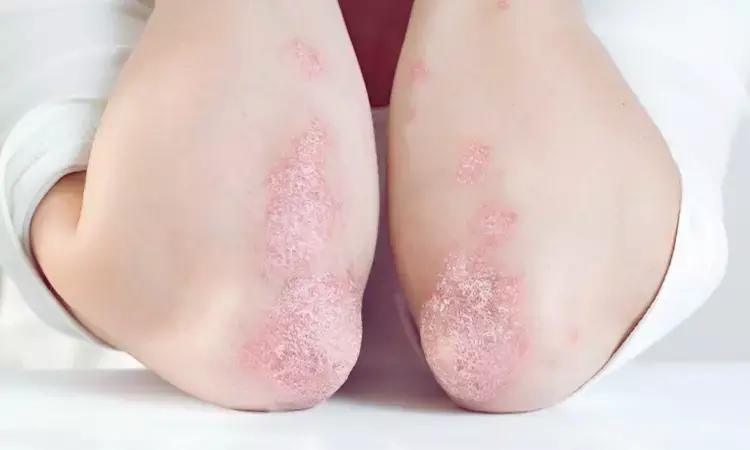- Home
- Medical news & Guidelines
- Anesthesiology
- Cardiology and CTVS
- Critical Care
- Dentistry
- Dermatology
- Diabetes and Endocrinology
- ENT
- Gastroenterology
- Medicine
- Nephrology
- Neurology
- Obstretics-Gynaecology
- Oncology
- Ophthalmology
- Orthopaedics
- Pediatrics-Neonatology
- Psychiatry
- Pulmonology
- Radiology
- Surgery
- Urology
- Laboratory Medicine
- Diet
- Nursing
- Paramedical
- Physiotherapy
- Health news
- Fact Check
- Bone Health Fact Check
- Brain Health Fact Check
- Cancer Related Fact Check
- Child Care Fact Check
- Dental and oral health fact check
- Diabetes and metabolic health fact check
- Diet and Nutrition Fact Check
- Eye and ENT Care Fact Check
- Fitness fact check
- Gut health fact check
- Heart health fact check
- Kidney health fact check
- Medical education fact check
- Men's health fact check
- Respiratory fact check
- Skin and hair care fact check
- Vaccine and Immunization fact check
- Women's health fact check
- AYUSH
- State News
- Andaman and Nicobar Islands
- Andhra Pradesh
- Arunachal Pradesh
- Assam
- Bihar
- Chandigarh
- Chattisgarh
- Dadra and Nagar Haveli
- Daman and Diu
- Delhi
- Goa
- Gujarat
- Haryana
- Himachal Pradesh
- Jammu & Kashmir
- Jharkhand
- Karnataka
- Kerala
- Ladakh
- Lakshadweep
- Madhya Pradesh
- Maharashtra
- Manipur
- Meghalaya
- Mizoram
- Nagaland
- Odisha
- Puducherry
- Punjab
- Rajasthan
- Sikkim
- Tamil Nadu
- Telangana
- Tripura
- Uttar Pradesh
- Uttrakhand
- West Bengal
- Medical Education
- Industry
Biologics May Clear Psoriasis, But Not the Inflammation Behind It, Research Warns

Spain: A new multinational study published in the Journal of Investigative Dermatology has revealed that a significant proportion of psoriasis patients continue to experience underlying systemic inflammation despite achieving near-complete skin clearance through biologic therapy. The research, led by Dr. Alba Lecumberri from the Department of Dermatology, Hospital Universitario Ramón y Cajal in Madrid, Spain, found that over one-third of patients showed signs of residual inflammation, which may carry important implications for their long-term health.
The prospective observational study analyzed data from 209 adults with psoriasis enrolled across three international cohorts in Spain, the United States, and Sweden. All participants were on stable biologic treatments and had achieved a Psoriasis Area Severity Index (PASI) score of 2 or less, reflecting well-controlled skin symptoms.
The study revealed the following findings:
- 36.3% of psoriasis patients had elevated high-sensitivity C-reactive protein (hsCRP ≥ 2 mg/L), indicating residual inflammation (RI) despite skin improvement.
- Higher body mass index (BMI) was significantly associated with the presence of RI.
- Increased visceral adipose tissue was linked to persistent systemic inflammation.
- Metabolic dysfunction–associated steatotic liver disease (MASLD) was common in patients with RI.
- Elevated baseline systemic inflammation was a notable factor in those with residual inflammation.
- Female patients were more likely to experience RI across all study cohorts, indicating possible sex-based differences in inflammatory patterns.
While biological therapies have proven effective in managing the visible symptoms of psoriasis, according to the authors, the study raises concerns that such treatments may not fully address the systemic nature of the disease. Psoriasis is increasingly recognized not just as a skin condition but as a chronic inflammatory disorder linked to a higher risk of cardiovascular disease, liver dysfunction, and other metabolic issues. The findings emphasize the need for a broader treatment approach that targets skin lesions and the underlying inflammation driving these associated comorbidities.
The researchers acknowledged several limitations in their study. The relatively short follow-up period may not have captured the long-term effects of biologic therapy on systemic inflammation. Moreover, the absence of a control group limits the ability to assess how biological therapy influences CRP levels over time. The presence of MASLD was inferred using surrogate markers rather than imaging, and the long-term clinical consequences of systemic inflammation in psoriasis were not directly evaluated.
The researchers note that despite these limitations, the study provides valuable insights into the persistent inflammatory burden in psoriasis patients. The researchers call for more comprehensive treatment strategies that address visible and hidden inflammation, especially given the elevated cardiovascular risk in this patient population.
Future research is needed to better understand the mechanisms behind residual inflammation and to explore interventions that may mitigate its broader health impacts.
"These findings emphasize the importance of monitoring systemic health in psoriasis patients—even those who appear to be responding well to treatment—and could shape future guidelines in managing the condition holistically," the researchers concluded.
Reference:
Lecumberri, A., et al. (2025). Residual Inflammation in Patients with Psoriasis Treated with Biologic Therapy: Findings from 3 Prospective Observational Cohorts. Journal of Investigative Dermatology. doi.org/10.1016/j.jid.2025.03.014.
Dr Kamal Kant Kohli-MBBS, DTCD- a chest specialist with more than 30 years of practice and a flair for writing clinical articles, Dr Kamal Kant Kohli joined Medical Dialogues as a Chief Editor of Medical News. Besides writing articles, as an editor, he proofreads and verifies all the medical content published on Medical Dialogues including those coming from journals, studies,medical conferences,guidelines etc. Email: drkohli@medicaldialogues.in. Contact no. 011-43720751


